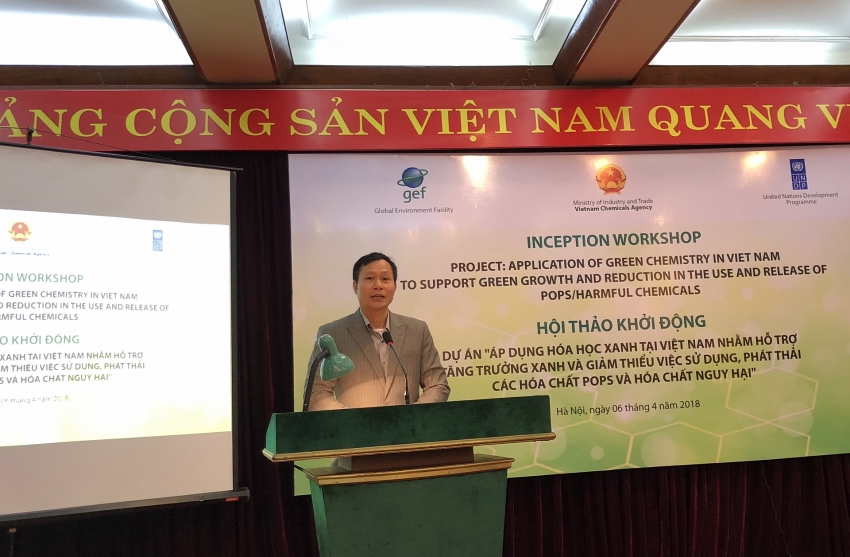UNDP launches new green chemical project
According to Dao Xuan Lai, UNDP assistant country director, Head of Environment and Climate Change, this is the first green chemistry project to be implemented in Vietnam and Southeast Asia with the goal of minimising the use and emissions of chemicals that are not on the list of the Multilateral Environment Agreements.
"The project has three objectives: creating a legal environment, raising awareness, and piloting practices that will help reduce emissions and the use of POPs," said Lai.
 |
| The programme will utilise Vietnam's significant experience in dealing with POPs |
He added, "Vietnam is one of the pioneers in POPs issues and has a lot of experience in dealing with POPs left over from the war to the present. Therefore, the UNDP and GEF expect that Vietnam will lay the foundations as well as give the first lessons and experiments in this field.”
At the workshop, Christine Wellington Moore, UNDP Programme Advisor Montreal Protocol Unit/Chemicals, Asia-Pacific Regional Centre, introduced the overall project activities, results framework, and the components to be implemented in Vietnam. "Green chemistry is not new, but it is not easy to do, so we want to get the opinions of the stakeholders in this workshop."
In Vietnam, while the chemical and manufacturing sectors play a very important role in the development of the national economy and in the industrialisation and modernisation of the country, certain chemicals which are potentially hazardous or toxic, their production processes, and products containing such chemicals are becoming of increasing concern because of their impact on human health, the environment, and ecosystems.
The project aims to create an enabling environment for the introduction of Green Chemistry in Vietnam and introduce Green Chemistry applications in production sectors with the purpose of reducing the use and release of chemicals controlled under the Stockholm and Minamata Conventions.
The project will reduce the use of Persistent Organic Pollutants (POPs) and release of Unintentional Persistent Organic Pollutants (U-POPs) through the introduction of green chemistry approach in six industrial sectors in Vietnam: chrome plating, pulp and paper manufacturing, plastic manufacturing, textile, pesticides, and solvents.
Specific guidance for each sector will be developed and the green chemistry approach will be streamlined into relevant legislation.
With the support of GEF and the UNDP, this three-year project will also promote awareness on green chemistry and the benefits of its application and its guiding principles.
What the stars mean:
★ Poor ★ ★ Promising ★★★ Good ★★★★ Very good ★★★★★ Exceptional
Related Contents
Latest News
More News
- Trung Nam-Sideros River consortium wins bid for LNG venture (January 30, 2026 | 11:16)
- Vietnam moves towards market-based fuel management with E10 rollout (January 30, 2026 | 11:10)
- Envision Energy, REE Group partner on 128MW wind projects (January 30, 2026 | 10:58)
- Vingroup consults on carbon credits for electric vehicle charging network (January 28, 2026 | 11:04)
- Bac Ai Pumped Storage Hydropower Plant to enter peak construction phase (January 27, 2026 | 08:00)
- ASEAN could scale up sustainable aviation fuel by 2050 (January 24, 2026 | 10:19)
- 64,000 hectares of sea allocated for offshore wind surveys (January 22, 2026 | 20:23)
- EVN secures financing for Quang Trach II LNG power plant (January 17, 2026 | 15:55)
- PC1 teams up with DENZAI on regional wind projects (January 16, 2026 | 21:18)
- Innovation and ESG practices drive green transition in the digital era (January 16, 2026 | 16:51)

 Tag:
Tag:























 Mobile Version
Mobile Version